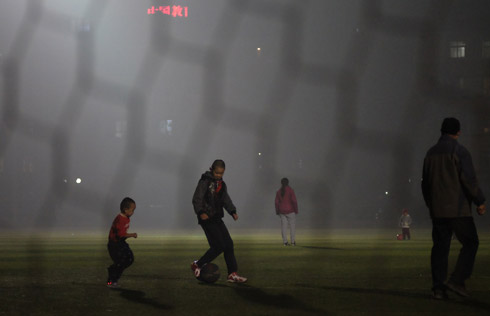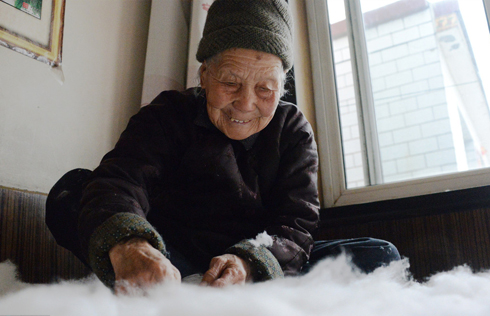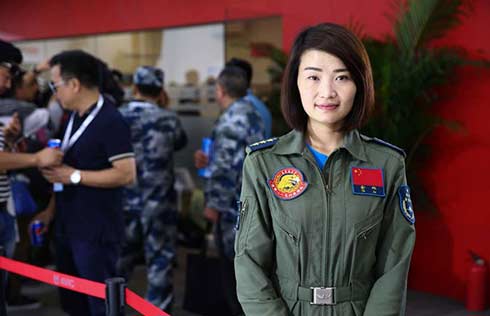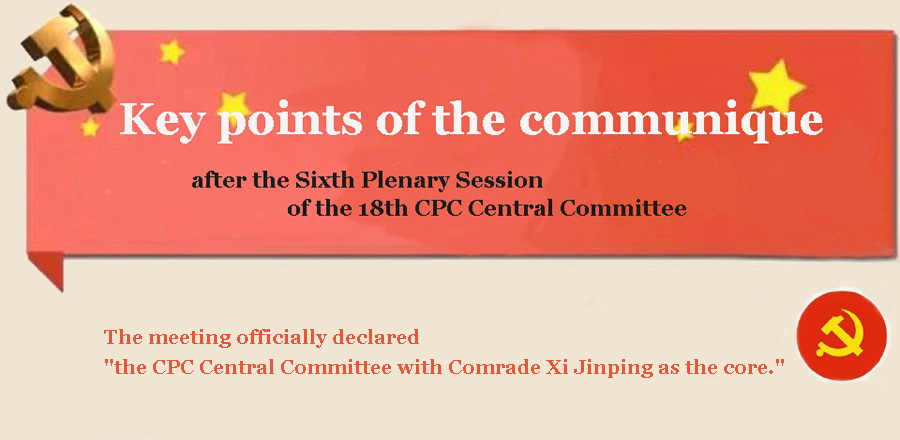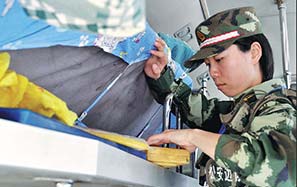Plenary session offers glimpse into CPC's inner workings
BEIJING - The biggest political party in the world by membership, the ruling party of the world's most populous country, and the architect for one of the fastest growing economies over the past three decades: the Communist Party of China (CPC) is all these and more.
Turning 95 this year, the CPC now boasts over 88 million members in the world's second largest economy. Since 1949, it has been the ruling party in China where it receives overwhelming support from the public while China's enviable development has left the rest of the world amazed.
As its success stories continue to roll out, the sixth plenary session of the 18th CPC Central Committee has offered an in-depth look into what goes on behind the scenes.
XI AS THE CORE
The endorsement of Xi Jinping, general secretary of the CPC Central Committee, as the core leader was perhaps the most eye-catching move at last week's plenum.
In a communique released after the meeting that gathered high-ranking CPC officials in Beijing, the Party called on all its members to "closely unite around the CPC Central Committee with Comrade Xi Jinping as the core."
Xi took the helm of the CPC in late 2012 when the Party held its 18th national congress. Since then, he has headed an array of leading groups overseeing economic development and national defense, among others, and launched a popular, nationwide anti-graft campaign that promised to bring down both "tigers and flies" -- high and low-ranking corrupt officials.
Xin Ming, a professor with the Party School of the CPC Central Committee, said since Xi took the helm of the CPC, the Party has made profound achievements in reform, development, stability, internal and foreign affairs, national defense, Party governance and state administration.
The reason the CPC has always been endorsed by the public and won victory in revolutionary struggles lies in its core of strong leadership, which leads the Party and people to progress constantly, Xin said.
In an editorial published last month, the CPC mouthpiece the People's Daily also said Xi's core status is "of great importance to China and the CPC."
"The Party and its Central Committee ... need a core to bond the Party, to unite the people, to tide over the challenges and to continue to forge ahead," it read.
STRICT PARTY GOVERNANCE
Xi explained two documents on the discipline of the Party at the plenum, namely the norms of political life in the Party under the current conditions, an update from a 1980 document, and the regulation on intra-Party supervision.
The norms stress consolidating ideals and beliefs, keeping to the basic Party line, safeguarding the authority of the CPC Central Committee, and maintaining close ties with the people, among others. The regulation is aimed at upholding CPC leadership, strengthened Party building, strict governance of the Party and maintaining the Party's status and purity.
In his own comments, Xi said the two documents, the full texts of which were published on Wednesday, are part of the Party's efforts to "fasten the cage of regulations" to curb corruption, by preventing old problems from recurring and new ones from spreading.
They are introduced to supplement the layout of the "Four Comprehensives," a strategy to promote reform and opening up, refine the socialist modernization drive, as well as to adhere to and develop socialism with Chinese characteristics, he said.
The "Four Comprehensives" are the comprehensive building of an all-round moderately prosperous society, deepening of reform, advancement of the rule of law and strict governing of the CPC.
In the past years, the third, fourth and fifth plenary sessions of the 18th CPC Central Committee studied and made arrangements for the first three "Comprehensives," and the sixth plenary session completed the picture by zeroing in on the fourth "Comprehensive," according to Xi.
The documents are also born out of a necessity to promote the comprehensive and strict governance of the Party, and to solve outstanding problems within the Party, Xi said.
Xie Chuntao, a professor with the Party School of the CPC Central Committee, agreed.
The two documents, one setting requirements on intra-Party life and the other making rules on supervising the requirements' implementation, are vital to the CPC drive of strict Party governance, Xie said.
He said the CPC has always been a political party of tight discipline and strict governance ever since its inception.
The emphasis was again amplified after 2012 as Xi spearheaded a sweeping anti-corruption campaign which has seen scores of senior officials investigated and sentenced for graft.
According to a statement made by the Supreme People's Procuratorate in July, a total of 97 officials at the vice ministerial level and above were investigated by prosecutors over the past five years.
The list gets a lot longer when lower level officials are included.
In many cases, the Party's internal disciplinary body starts its own probe before the judiciary steps in.
"That's what the Party's been repeatedly stressing: that its own discipline is stricter than law," Xie said.
DEMOCRATIC CENTRALISM
But the Party is not all about discipline. The norms of political life in the Party under the current conditions also stipulated to create within the Party "a political landscape, which integrates concentration with democracy, discipline with freedom, and unified will with ease of individual mind."
Democratic centralism has been taken by the CPC as a fundamental organizational principle.
The principle is reiterated in the newly published norms of political life in the Party under the current conditions, which says intra-Party democracy is vital to the CPC, and is fundamental to a positive, healthy internal political environment.
Party committees at all levels must adhere to the collective leadership system, the document says, adding all major decisions must be made after collective discussion and in line with the principle of majority rule.
According to Sun Xiaoli, a professor with the Chinese Academy of Governance, the democratic aspect of the principle involves the freedom of Party members to discuss and debate matters of policy and direction, while the leadership of the Party makes decisions based on the debate and discussion. This latter aspect represents centralism.
"Democracy and centralism are always closely linked," she said.
Her words were echoed by Wang Chuanzhi with the Qiushi Journal Press.
The essence of democratic centralism is democracy with leadership, Wang said.
"Only by finding and then maintaining a natural balance between centralization on the basis of democracy and democracy under centralized guidance will we be able to guarantee the smooth operation and effectiveness of democratic centralism," Wang said.
"Collective leadership, strict governance and democratic centralism, these are the lifelines of the CPC and what makes the Party what it is today," Xie Chuntao said.




